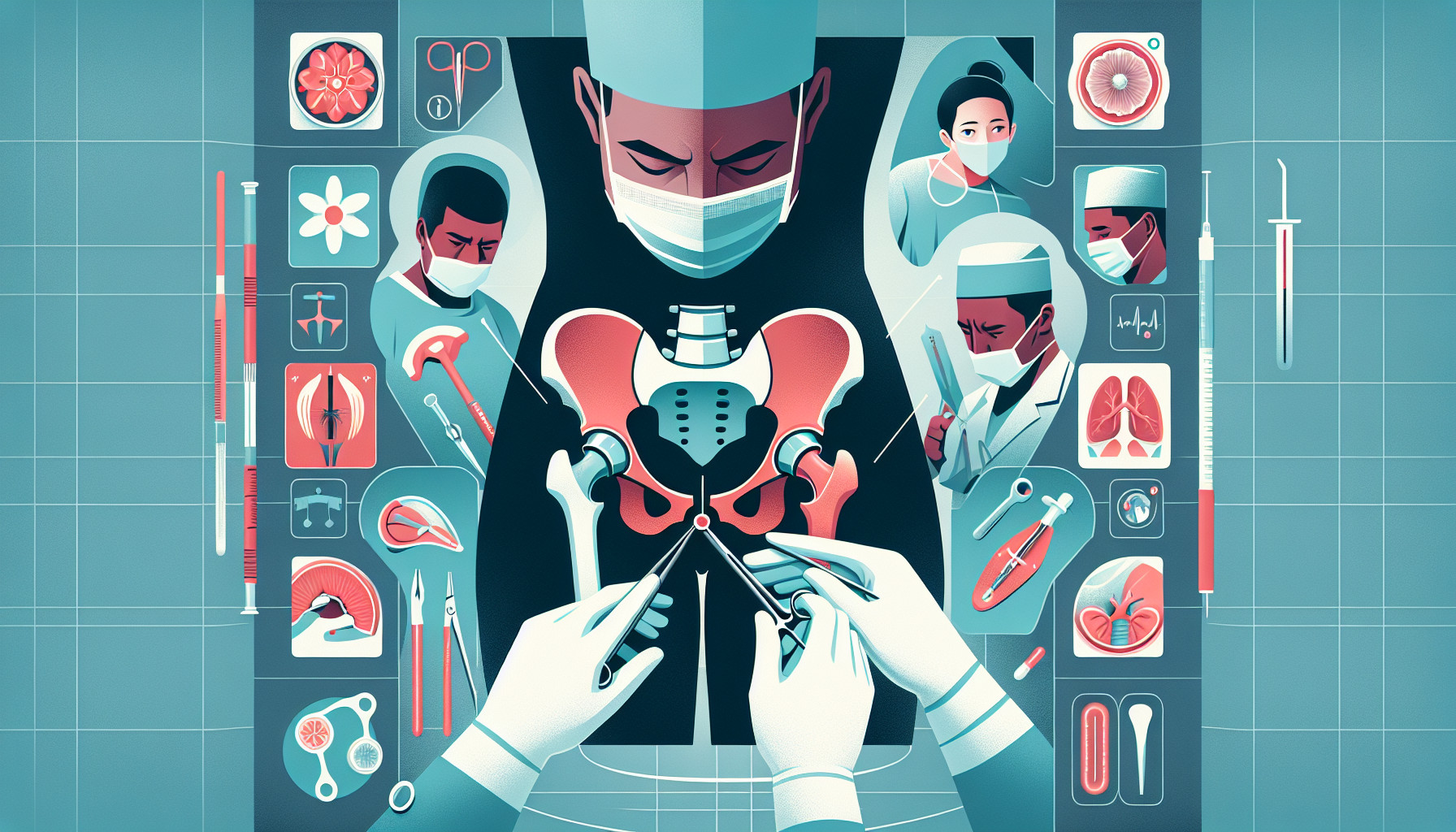Our Summary
Hip fractures are a major health concern for the elderly. This research paper examines how hip fractures affect the overall health and quality of life of elderly patients. The researchers looked at 49 studies that used questionnaires to measure health status and quality of life in patients over 65 years old who had suffered a hip fracture. They found that hip fractures negatively impact physical, social, and emotional health. While most patients showed improvement in the first six months after the fracture, their health did not return to the level it was before the injury. Factors influencing health and quality of life after a hip fracture included mental state, physical and psychological functioning before the fracture, other health conditions, gender, nutrition, pain after surgery, length of hospital stay, and complications. The type of treatment also made a difference, with hip replacement providing better outcomes than internal fixation for certain types of fractures. The researchers recommend optimizing nutrition, rehabilitation programs, and psychological counseling for patients after hip fracture surgery. They also suggest using a variety of measures to assess health and quality of life in future research.
FAQs
- How does a hip fracture affect the overall health and quality of life of elderly patients?
- What factors influence health and quality of life after a hip fracture in elderly patients?
- Does the type of treatment for a hip fracture influence the patient’s recovery and quality of life?
Doctor’s Tip
One helpful tip a doctor might give a patient about hip replacement surgery is to follow a thorough rehabilitation program after the procedure. This may include physical therapy exercises to strengthen the hip muscles, improve range of motion, and help with walking and mobility. It is important to stick to the recommended exercises and attend all scheduled therapy sessions to maximize the success of the hip replacement surgery and improve overall quality of life.
Suitable For
Patients who are typically recommended for hip replacement surgery are those who have severe hip pain that limits their daily activities, have not seen improvement with other treatments such as medication or physical therapy, have arthritis or other degenerative conditions affecting the hip joint, have suffered a hip fracture that cannot be effectively treated with other methods, or have a hip deformity that causes pain and limits mobility. Hip replacement surgery is often recommended for older adults, but can also be performed on younger patients who have experienced significant hip damage or injury.
Timeline
Before hip replacement surgery:
- Patient experiences hip pain and limited mobility, leading to difficulty performing daily activities.
- Patient consults with a healthcare provider who recommends hip replacement surgery as a treatment option.
- Patient undergoes pre-operative assessments, including physical exams, imaging tests, and blood work.
- Patient prepares for surgery by following pre-operative instructions, such as stopping certain medications and fasting before the procedure.
After hip replacement surgery:
- Patient undergoes the surgical procedure, which involves replacing the damaged hip joint with an artificial implant.
- Patient stays in the hospital for a few days for monitoring and rehabilitation.
- Patient begins physical therapy and rehabilitation exercises to improve strength, flexibility, and mobility.
- Patient may experience temporary pain and discomfort post-surgery, which is managed with pain medication.
- Patient gradually resumes normal activities and experiences improved mobility and reduced hip pain.
- Patient continues to follow post-operative care instructions, including attending follow-up appointments and adhering to physical therapy recommendations.
- Patient’s overall health and quality of life improve as they regain function and mobility in their hip joint.
What to Ask Your Doctor
Some questions a patient should ask their doctor about hip replacement include:
- What are the benefits of hip replacement surgery for my specific condition?
- What are the potential risks and complications associated with hip replacement surgery?
- What is the recovery process like after hip replacement surgery?
- How long will it take for me to fully recover and regain mobility after hip replacement surgery?
- What type of physical therapy or rehabilitation will I need after hip replacement surgery?
- How long will I need to stay in the hospital following hip replacement surgery?
- Will I need any assistive devices or modifications to my home after hip replacement surgery?
- What are the long-term outcomes and success rates of hip replacement surgery for patients in my age group?
- Are there any restrictions or limitations on activities I should be aware of after hip replacement surgery?
- What steps can I take to optimize my nutrition and overall health before and after hip replacement surgery to improve my outcomes?
Reference
Authors: Peeters CM, Visser E, Van de Ree CL, Gosens T, Den Oudsten BL, De Vries J. Journal: Injury. 2016 Jul;47(7):1369-82. doi: 10.1016/j.injury.2016.04.018. Epub 2016 Apr 23. PMID: 27178770
